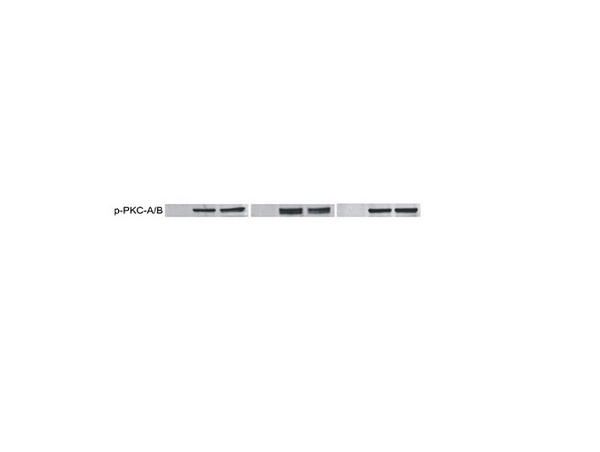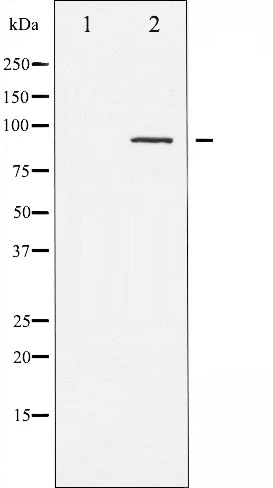PKC alpha antibody
GTX130453
ApplicationsImmunoFluorescence, Western Blot, ImmunoCytoChemistry, ImmunoHistoChemistry, ImmunoHistoChemistry Frozen
Product group Antibodies
TargetPRKCA
Overview
- SupplierGeneTex
- Product NamePKC alpha antibody
- Delivery Days Customer9
- Application Supplier NoteWB: 1:500-1:3000. ICC/IF: 1:100-1:1000. IHC-Fr: 1:100-1:1000. *Optimal dilutions/concentrations should be determined by the researcher.Not tested in other applications.
- ApplicationsImmunoFluorescence, Western Blot, ImmunoCytoChemistry, ImmunoHistoChemistry, ImmunoHistoChemistry Frozen
- CertificationResearch Use Only
- ClonalityPolyclonal
- Concentration1.25 mg/ml
- ConjugateUnconjugated
- Gene ID5578
- Target namePRKCA
- Target descriptionprotein kinase C alpha
- Target synonymsAAG6, PKC-alpha, PKCA, PKCI+/-, PKCalpha, PRKACA, protein kinase C alpha type, PKC-A, aging-associated gene 6
- HostRabbit
- IsotypeIgG
- Protein IDP17252
- Protein NameProtein kinase C alpha type
- Scientific DescriptionProtein kinase C (PKC) is a family of serine- and threonine-specific protein kinases that can be activated by calcium and the second messenger diacylglycerol. PKC family members phosphorylate a wide variety of protein targets and are known to be involved in diverse cellular signaling pathways. PKC family members also serve as major receptors for phorbol esters, a class of tumor promoters. Each member of the PKC family has a specific expression profile and is believed to play a distinct role in cells. The protein encoded by this gene is one of the PKC family members. This kinase has been reported to play roles in many different cellular processes, such as cell adhesion, cell transformation, cell cycle checkpoint, and cell volume control. Knockout studies in mice suggest that this kinase may be a fundamental regulator of cardiac contractility and Ca(2+) handling in myocytes. [provided by RefSeq]
- Storage Instruction-20°C or -80°C,2°C to 8°C
- UNSPSC12352203
References
- Neurokinin-1 receptor drives PKCalpha-AURKA/N-Myc signaling to facilitate the neuroendocrine progression of prostate cancer.Read more
- Targeting A-kinase anchoring protein 12 phosphorylation in hepatic stellate cells regulates liver injury and fibrosis in mouse models. Ramani K et al., 2022 Oct 4, ElifeRead more
- PKCdelta mediates mitochondrial ROS generation and oxidation of HSP60 to relieve RKIP inhibition on MAPK pathway for HCC progression. Mandal JP et al., 2021 Feb 1, Free Radic Biol MedRead more
- Toxoplasma gondii induces prolonged host epidermal growth factor receptor signalling to prevent parasite elimination by autophagy: Perspectives for in vivo control of the parasite. Lopez Corcino Y et al., 2019 Oct, Cell MicrobiolRead more
- Role of A-Kinase Anchoring Protein Phosphorylation in Alcohol-Induced Liver Injury and Hepatic Stellate Cell Activation. Ramani K et al., 2018 Mar, Am J PatholRead more
- 18beta-glycyrrhetinic acid inhibits migration and invasion of human gastric cancer cells via the ROS/PKC-alpha/ERK pathway. Cai H et al., 2018 Jan, J Nat MedRead more




